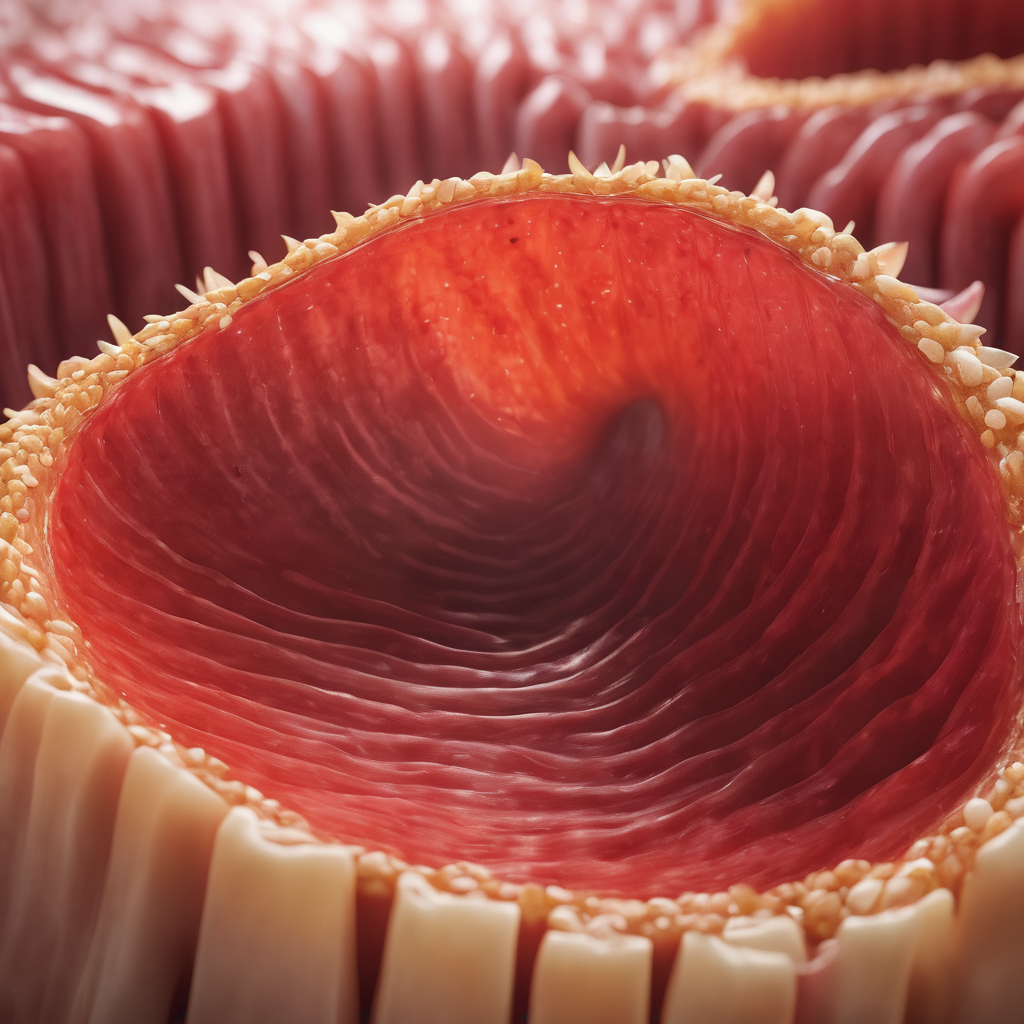Navigating Astyfer Usage for Stomach Ulcer Patients: A Comprehensive Guide
Living with stomach ulcers, those painful lesions lining the inner stomach, can be a balancing act. While iron deficiency anemia (IDA) often accompanies this condition, the thought of introducing iron supplementation, particularly Astyfer, might raise concerns. Fear not, ulcer warriors! This comprehensive guide delves into the intricate world of Astyfer and equips you with the knowledge to navigate its potential benefits and considerations within the context of managing your ulcers.
Understanding the Iron-Ulcer Conundrum:
Iron deficiency, a frequent accomplice of stomach ulcers, can exacerbate symptoms and hinder healing. Replenishing iron stores becomes crucial, but conventional iron supplements sometimes pose a dilemma. Their potential to irritate the already-inflamed gastric lining raises legitimate concerns. This is where Astyfer, a gentler iron warrior, steps onto the battlefield.
Astyfer: A Different Breed of Iron Ally:
Unlike its ferrous fumarate counterparts, Astyfer presents iron in a gentler form – glycine chelate. This complex shields the iron from directly interacting with the stomach lining, potentially minimizing irritation and discomfort. It also utilizes amino acids like glycine and histidine, acting as Trojan horses to facilitate iron absorption through a paracellular pathway, bypassing the potentially inflammatory enterocyte route.

Addressing Common FAQs: A Shield Against Uncertainty:
- Will Astyfer worsen my stomach ulcers? While the risk of irritation exists with any iron supplement, Astyfer’s gentle formulation minimizes it. Consulting your doctor for personalized guidance and starting with a low dosage can further mitigate concerns.
- Can Astyfer interfere with my ulcer medication? While interactions are unlikely, always keep your doctor informed of all supplements you take. They can assess potential interactions and adjust your medication regimen if necessary.
- How long should I take Astyfer for my ulcers? The duration depends on your individual iron deficiency severity and treatment plan. Typically, iron supplementation continues until iron stores are replenished and IDA is resolved. 4. Are there any side effects of using Astyfer with ulcers? While generally well-tolerated, gastrointestinal discomfort like nausea or constipation might occur, especially at higher doses. Monitor your body and promptly inform your doctor of any side effects.
- Are there alternatives to Astyfer for ulcer patients? Other gentle iron options like iron polysaccharide complex (IPC) exist. Discuss all possibilities with your doctor to find the optimal supplement for your needs.
- Is diet enough to overcome my iron deficiency with ulcers? While dietary iron is crucial, absorption might be compromised due to ulcers. Astyfer can bridge the gap and ensure adequate iron supply for faster healing.
Unveiling the Benefits: Why Astyfer Might Be Your Iron Champion:
- Gentle Approach: Its glycine chelate minimizes potential gastric irritation, making it a friendlier option for your sensitive stomach.
- Enhanced Absorption: The amino acid complex facilitates efficient iron absorption, ensuring faster iron repletion and symptom improvement.
- Multifaceted Support: Astyfer provides readily absorbable iron alongside glycine, an amino acid that promotes tissue healing and ulcer repair.
- Reduced Dependence on Blood Transfusions: Replenishing iron stores with Astyfer can potentially decrease the need for blood transfusions in severe IDA cases.
Weighing the Considerations: Navigating the Iron Seas with Caution:
- Individual Sensitivity: While generally well-tolerated, some individuals might experience mild gastrointestinal side effects. Monitoring and communicating with your doctor is key.
- Pre-existing Kidney Disease: Consult your doctor before starting Astyfer if you have pre-existing kidney disease, as high iron intake can potentially be harmful.
- Dosage Optimization: Starting with a lower dosage and gradually increasing under your doctor’s guidance minimizes potential side effects and ensures optimal iron intake.
- Diet and Lifestyle: Remember, Astyfer complements but doesn’t replace a healthy diet rich in iron-rich foods and lifestyle modifications that promote ulcer healing.
Remember: Consulting your doctor is paramount before embarking on any iron supplementation journey, especially when navigating the delicate landscape of stomach ulcers. Astyfer, with its gentle form and potential benefits, might be a valuable iron ally in your battle against IDA. However, individual needs and considerations must be carefully evaluated by your trusted healthcare professional.
Final Thoughts: Can Astyfer interact with my ulcer medication?
While interactions between Astyfer and most common ulcer medications like proton pump inhibitors (PPIs) or H2 receptor antagonists are unlikely, it’s crucial to exercise caution and be informed. Here’s a detailed breakdown:
Direct Interactions:
- Astyfer’s glycine chelate form minimizes the possibility of directly interacting with ulcer medications. Chelation reduces the free iron available for potential interactions with other drugs.
- However, some PPI medications like lansoprazole can slightly decrease iron absorption by altering stomach pH. This effect is generally mild and shouldn’t significantly impact Astyfer’s efficacy.
Indirect Interactions:
- Depending on your specific ulcer medication and individual health factors, some indirect interactions might occur. For example, if your medication already causes mild digestive discomfort, adding Astyfer (even the gentler form) might increase the intensity of gastrointestinal side effects like nausea or constipation.
- Additionally, if you have pre-existing kidney disease, combining Astyfer with certain ulcer medications that can also affect kidney function (like some antibiotics) might require extra monitoring and dosage adjustments.
Recommendations:
- Always inform your doctor: Before starting Astyfer while taking any ulcer medication, it’s vital to disclose all your medications to your doctor. They can assess potential interactions and advise on adjustments to your medication regimen or Astyfer dosage if necessary.
- Start low and monitor: Begin with a lower dosage of Astyfer and closely monitor your body for any potential side effects, especially within the first few weeks of starting the supplement.
- Communicate promptly: If you experience any new or worsening gastrointestinal discomfort or other side effects after taking Astyfer alongside your ulcer medication, promptly inform your doctor for further evaluation and adjustment.
Remember, prioritizing open communication with your doctor and maintaining close monitoring of your body’s response are key to navigating the complexities of iron supplementation alongside ulcer medications. By exercising caution and seeking professional guidance, you can safely benefit from both ulcer treatment and iron repletion to conquer your health challenges.
